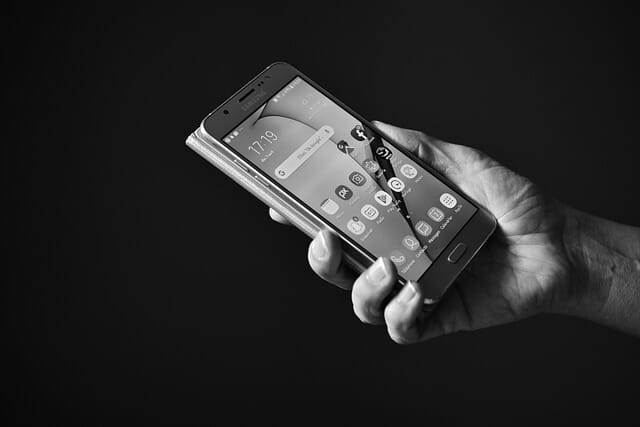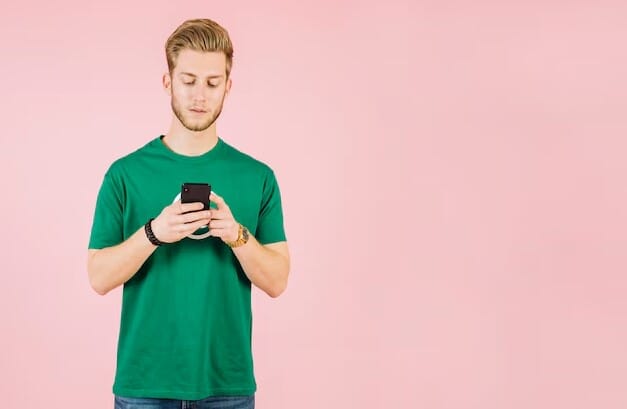Who Called Me? Exploring the Psychology of Unknown Calls
Introduction
In today's fast-paced world, receiving an unknown phone call can evoke a range of emotions—from curiosity and intrigue to anxiety and annoyance. With the rise of technology, it has become increasingly easy for unknown callers to reach us, whether they are telemarketers, scammers, or even someone from our past. The question "Who called me?" often lingers in our minds, leading us on a quest to identify unknown callers. This article delves into the psychology behind these calls, why they captivate our attention, and how we can effectively manage and reveal caller identity while navigating this complex landscape.
Who Called Me? Identify Unknown Callers
When your phone rings and the caller ID displays an unfamiliar number, what do you typically do? Do you let it ring, answer out of curiosity, or perhaps check online for more information? Identifying unknown callers is a common practice today. Many people resort to spam call lookup services or apps designed specifically for this purpose.
The Allure of Unknown Calls
There's something inherently intriguing about receiving a call from an unknown number. Psychologically speaking, humans are wired to seek answers and resolve uncertainties. The anticipation associated with answering an unknown call can trigger our fight-or-flight response.
Why Do We Answer Unknown Calls?
The Role of Technology in Caller Identification
Advancements in technology have transformed how we handle unknown calls. Mobile applications now allow users to block spam calls or reveal caller identities with just a few taps on their screens.
Popular Apps for Caller Identification
- Truecaller
- Hiya
- Whoscall
These apps leverage crowdsourced data to flag known spammers and help users identify incoming calls.
Spam Call Lookup: A Modern Necessity
Every day, millions of people receive unsolicited calls from telemarketers or scammers trying to sell them products or steal personal information. Engaging with these callers can lead to frustration and waste valuable time.
Understanding Spam Calls
Spam calls are typically unsolicited phone calls Phone lookup accuracy made by businesses attempting to promote their products or services—often disregarding regulations set forth by consumer protection agencies.
Statistics on Spam Calls
According to recent studies:
- Over 40% of all mobile calls received are classified as spam.
- Consumers reported losing an average of $430 each due to phone scams in 2022.
How to Use Spam Call Lookup Services Effectively
Using spam call lookup services can save you time and protect your privacy. Here’s how:
Reveal Caller Identity: Techniques and Tools
Unmasking the identity of an unknown caller is not only about curiosity; it also serves a practical purpose—protecting yourself from potential scams or harassment.
Techniques for Revealing Caller Identity
Best Reverse Phone Lookup Websites
| Website | Description | |-----------------------|-----------------------------------------| | Whitepages | Comprehensive database for reverse lookups | | AnyWho | Free service with limited data | | Spokeo | Paid service with detailed information |
Psychological Effects of Receiving Unknown Calls
The implications of receiving unknown calls extend beyond mere annoyance; they touch upon psychological aspects that can affect our mental well-being.
Anxiety Induced by Unknown Callers
For some individuals, receiving unrecognized calls can lead to heightened anxiety levels. The uncertainty surrounding these calls may provoke feelings of paranoia regarding one’s safety or privacy.

Coping Strategies for Anxiety Related to Unknown Calls
The Emotional Rollercoaster of Answering Unknown Calls
When you do answer an unknown call, several emotions may wash over you—from relief if it’s someone familiar to disappointment if it turns out to be yet another telemarketer.
Managing Expectations When Answering Unknown Numbers
It's essential to approach these situations with realistic expectations:
- Expect less if it's a sales pitch.
- Be open-minded about potential reconnects with long-lost friends.
Cultural Perspectives on Phone Communication
Different cultures exhibit varying attitudes toward telephone communication, which influences how people handle unknown callers.
Western vs Eastern Views on Phone Etiquette
In many Western countries, answering calls is seen as courteous; Missed call lookup however, in some Eastern cultures, responding immediately might not carry the same expectation due to differing communication norms.
Cultural Sensitivity in Communication Practices
Understanding cultural differences aids in better communication practices—essentially revealing caller identity through context rather than just numbers alone.
FAQ Section
1. What should I do if I receive a suspicious call?
If you suspect that a call is fraudulent, hang up immediately and report it through appropriate channels like your local consumer protection agency or use spam call lookup tools.
2. Can I trace an anonymous call?
Tracing anonymous calls can be challenging but using reverse phone lookup services may provide insight into unlisted numbers depending on local laws regarding privacy.
3. How do I block unwanted callers?
Most smartphones come equipped with built-in features that allow users to block specific numbers directly through their settings menu under “calls” or “contacts.”
4. Are there legal consequences for spam callers?
Yes! Many countries have strict regulations against unsolicited telemarketing practices which include penalties for violating do-not-call lists established by consumers.
5. Why do scammers use spoofed numbers?
Scammers often use spoofed numbers—numbers that appear legitimate—to trick victims into answering their calls by mimicking trusted sources such as banks or government organizations.
6. What resources exist for reporting spam calls?
You can report spam calls at various platforms depending on your country:
- National Do Not Call Registry (US)
- Federal Trade Commission (FTC) complaint form
- Local consumer protection agencies
Conclusion
Receiving an unknown call is undeniably part of modern life—it elicits curiosity while simultaneously raising concerns about privacy and safety issues today’s society faces daily amidst rising technology usage patterns surrounding communication means available at everyone’s fingertips now more than ever before! By understanding what drives our reactions towards these situations—be they anxiety-inducing moments filled with suspenseful expectation—we equip ourselves better manage future encounters effectively while maintaining peace-of-mind along this journey exploring reasons behind those mysterious voices reaching out across Reverse phone number search invisible lines connecting us all together around globe!
So next time your phone rings from an unrecognized number ask yourself—“Who called me?” And remember that identifying unknown callers is just one aspect within broader context encompassing various psychological factors shaping experiences stemming from those elusive connections we make through sound alone each day!
